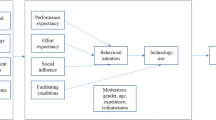Abstract
This paper describes an attempt to implement a complex information technology system with the New York City Transit Authority’s (NYCTA) Bus Maintainers intended to help better track and coordinate bus maintenance schedules. IT implementation is notorious for high failure rates among so-called “low level” workers. We believe that many IT implementation efforts make erroneous assumptions about front line worker’s expertise, which creates tension between the IT implementation effort and the “cultures of practice” among the front line workers. We designed an aggressive “learning intervention” to address this issue and called “Operational Simulation”. Rather than requiring the expected 12 months for implementation, the hourly staff reached independence with the new system in 2 weeks and line supervisors (who do more) managed in 6 weeks. Additionally, the NYCTA shifted from a reactive to a proactive maintenance approach, reduced cycle times, and increased the “mean distance between failure”, resulting in a estimated $40 million cost savings. Implications for cognition, expertise, and training are discussed.



Similar content being viewed by others
References
Boldt R (1994) TCRP synthesis #5, management information systems, a synthesis of transit practice. Sponsored by the Federal Transit Administration, Transportation Research Board, National Research Council publications, Washington, D.C
Boldt R (2000) Management information systems: a synthesis of transit practice. Sponsored by the Federal Transit Administration, Transportation Research Board, National Research Council publications, Washington, D.C
Capelli P, Bassie L, Katz H, Knoke D, Osterman P, Useem M (1997) Change at work: how American industry and workers are coping with corporate restructuring and what workers must do to take charge of their own careers. Oxford University Press, Oxford
Chamberlain ES, DiBello L (1997) Iterative design and implementation: a model of successful scheduled maintenance technology deployment. Transportation Research Record, August 1997, no. 1571. National Academy Press, Washington, D.C
Chi M, Glaser R, Farr M (1988) The nature of expertise. Lawrence Erlbaum and Associates, New York
DiBello L (1996) Providing multiple “ways in” to expertise for learners with different backgrounds: when it works and what it suggests about adult cognitive development. J Exp Theor Artif Intell 8:229–257
DiBello L (1997) Measuring success in non-trivial ways: How we can know that a DSS implementation has really worked. In: Proceedings of the 1997 IEEE International Conference on Systems, Man and Cybernetics. Society of the Institute of Electrical and Electronics Engineers, Inc
DiBello L (1998) Exploring the relationship between activity and the development of expertise; paradigm shifts and decision defaults. In: Zsambok C, Klein G (eds) Naturalistic decision making. Erlbaum Publisher’s book series “Expertise: research and applications”. Lawrence Erlbaum and Associates, New York, p 43
DiBello L, Kindred J (1992) Understanding MRPII systems: a comparison between two plants. Technical report for Laboratory for Cognitive Studies of Work, City University Graduate School, New York
DiBello L, Glick J (1993) Technology and minds in an uncertain world. Paper presented at the annual conference of the national society for performance instruction, Chicago, 12–16 April 1993
Dreyfus H (2000) Being in the world: a commentary on Heidegger’s being and time, division 1. The MIT Press, Cambridge
Dreyfus HL, Dreyfus SE (1986) Mind over machine: the power of human intuitive expertise in the era of the computer. Free Press, New York
Glass RL (2005) IT failure rates—70% or 10 to 15%?. IEEE Software, Washington, pp 100–112
Klein G (1999) Sources of power. MIT Press, Cambridge
Klein G (2004) The Power of intuition: how to use your gut feelings to make better decisions at work. Doubleday, New York
Klein G, Calderwood R, MacGregor D (1989) Critical decision method for eliciting knowledge. IEEE Trans Syst Man Cybern 19:44
Rogoff B, Lave J (1984) Everyday cognition: its development in social context. Harvard University Press, Cambridge
Scribner S (1988) Head and hand: an action approach to thinking (Occasional Paper No.3). National Center on Education and Employment, New York
Scribner S, Sachs P, DiBello L, Kindred J (1991) Knowledge acquisition at work. Technical report no. 22. National Center on Education and Employment, Teacher’s College Columbia University, New York
Scribner S, DiBello L, Kindred J, Zazanis E (1992) Coordinating knowledge systems: a case study. Research report prepared for The Spencer Foundation. Laboratory for Cognitive Studies of Work, City University of New York Graduate School and University Center, New York
The Standish Report (1994) Chaos chronicles. Technical report, The Standish Group, Boston
The Standish Report (1998) Chaos chronicles. Technical report, The Standish Group, Boston
The Standish Report (2003) Chaos chronicles v3.0. Technical report, The Standish Group, Boston
Vygotsky L (1987) Thinking and speech. In: Rieber RW, Carton AS (eds) The collected works of L.S. Vygotsky, Volume 1: problems of general psychology. Plenum Press, New York
Zsambok CE, Klein G (1997) Naturalistic decision making. Erlbaum, Mahwah
Author information
Authors and Affiliations
Corresponding author
Rights and permissions
About this article
Cite this article
DiBello, L., Missildine, W. Information technologies and intuitive expertise: a method for implementing complex organizational change among New York City Transit Authority’s Bus Maintainers. Cogn Tech Work 12, 61–75 (2010). https://doi.org/10.1007/s10111-008-0126-z
Received:
Accepted:
Published:
Issue Date:
DOI: https://doi.org/10.1007/s10111-008-0126-z




